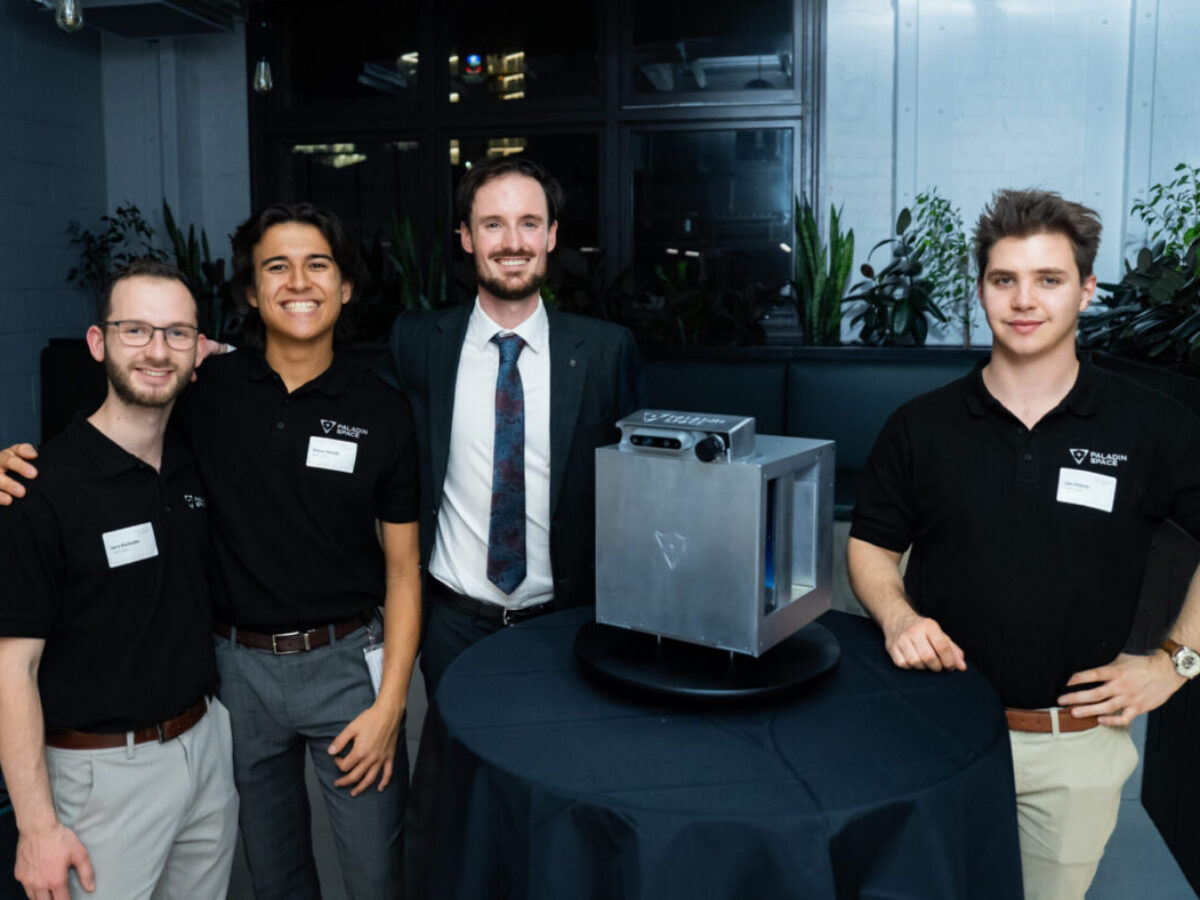Adelaide’s Paladin gives private demo of space junk collection vehicle

Paladin Space, a University of South Australia-based business focussed on removing space junk from orbit, has showcased its technology at a private event and teased news of an upcoming international expansion.
In a statement from the university on Friday, the company said the Thursday demonstration of its Triton system at UniSA’s Innovation & Collaboration Centre (ICC) came ahead of a planned in-orbit demo, securing pilot customers, qualification testing, and expected “news of an overseas expansion in coming months.”
Paladin – founded in 2023 – aims to capture debris “from multiple targets”, and storing it on satellites for recycling, making space junk debris cheaper and more sustainable. It also aims for Triton to be “able to eject its contents on space targets, preserving the spacecraft in orbit to be reused for other missions.”
Triton is designed to capture “many small pieces of debris such as fragments from collisions” and its size “is scalable depending on the mission”.
Founder Harrison Box added, “We are designing Triton to be able to dock easily with these in-orbit manufacturing stations so that the contents it collects can be recycled into metal rods or sheets for manufacturing satellites.”
According to predictions from Northern Sky Research cited by Paladin, the “In-Orbit Servicing Market” is expected to grow to $4.7 billion by 2031, with “roughly half of that market… debris removal and salvaging.”
Paladin announced a $100,000 Seed-Start grant from the state government last year to develop new image processing techniques for identifying space debris, and participated in UniSA’s Venture Catalyst Space program in 2023.
SA minister for space industries Stephen Mullighan said, “Paladin Space’s innovative technology, which has been developed right here in South Australia, is a perfect example of what’s possible when you foster an environment that nurtures bold ideas.”
Editor's note: An earlier version of this article described Paladin as a university spinout. UniSA has clarified that the company “was not born of our research or experts. Instead, Paladin joined our entrepreneurial incubator programs and worked from our premises, using our supports and contacts, equipment etc to get to the point they are now.”
Picture: supplied
Further reading
@aumanufacturing Sections
Analysis and Commentary Awards casino reviews Defence Gambling Manufacturing News Online Casino Podcast Technology Videos





